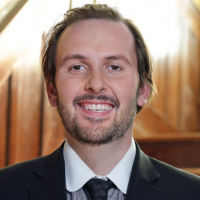Maryland Heights White Collar Crime Lawyer, Missouri
Sponsored Law Firm
-
 x
x

Click For More Info:
-
The Law Offices of Richard L. Cooper, P.A.
848 Brickell Avenue Suite 800 Miami, FL 33131» view mapDWI/DUI, Drug Trafficking, Felony Nationally Ranked Top 40 Under 40
With Richard L. Cooper you can expect a trusted confidant who will work diligently to fully understand your case and determine a road map to help you regain control of your life.
800-756-2781
Christopher M. Combs
✓ VERIFIEDCriminal, DUI-DWI, Felony, Misdemeanor, White Collar Crime
Combs Waterkotte in the Community
Attorney Christopher Combs is the founder and partner of Combs Waterkotte in St. Louis, MO. A top-rated trial lawyer with more than seven years total ... (more)
Jason A Korner
White Collar Crime, Misdemeanor, Felony, Criminal
Status: In Good Standing Licensed: 18 Years
FREE CONSULTATION
CONTACTMick Henderson
Workers' Compensation, White Collar Crime, Civil Rights, Products Liability
Status: In Good Standing
FREE CONSULTATION
CONTACTJohn Schleiffarth
White Collar Crime, Felony, DUI-DWI, Criminal
Status: In Good Standing Licensed: 14 Years
FREE CONSULTATION
CONTACTRobert Stientjes
Whistleblower, Elder Law, White Collar Crime, Estate Planning
Status: In Good Standing
Allison F. Stenger
Landlord-Tenant, Workers' Compensation, White Collar Crime, Personal Injury
Status: In Good Standing
Tania Aldaddah
Traffic, White Collar Crime, DUI-DWI, Criminal, Personal Injury
Status: In Good Standing
Scott J. Dickenson
Construction, Complex Litigation, Litigation, White Collar Crime
Status: In Good Standing Licensed: 27 Years

 Richard L. Cooper Miami, FL
Richard L. Cooper Miami, FL AboutMiami Attorney at Law
AboutMiami Attorney at Law ServicesCriminal Defense
ServicesCriminal Defense

